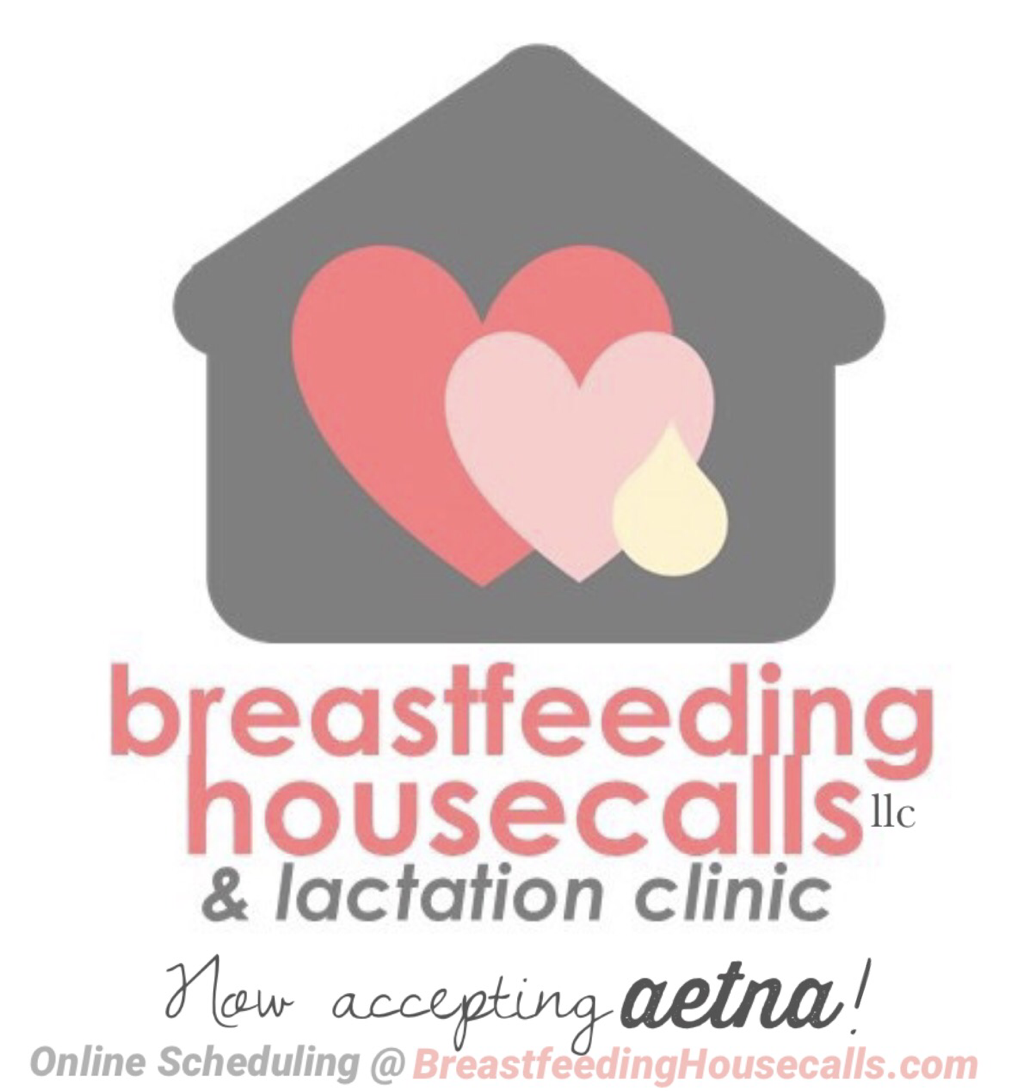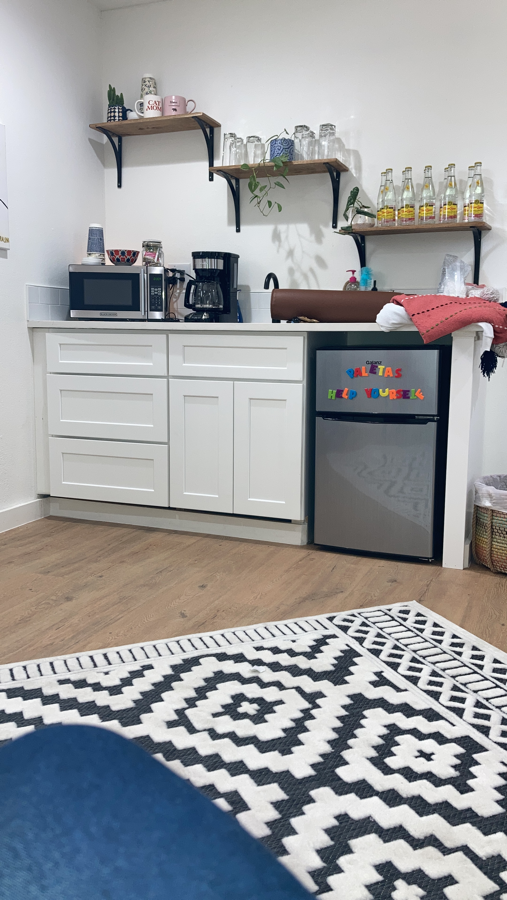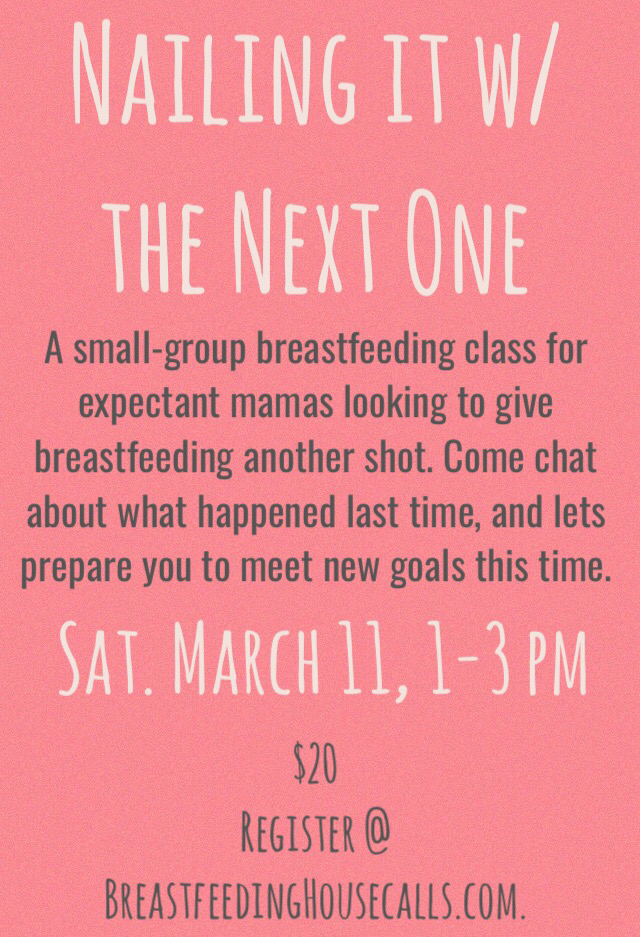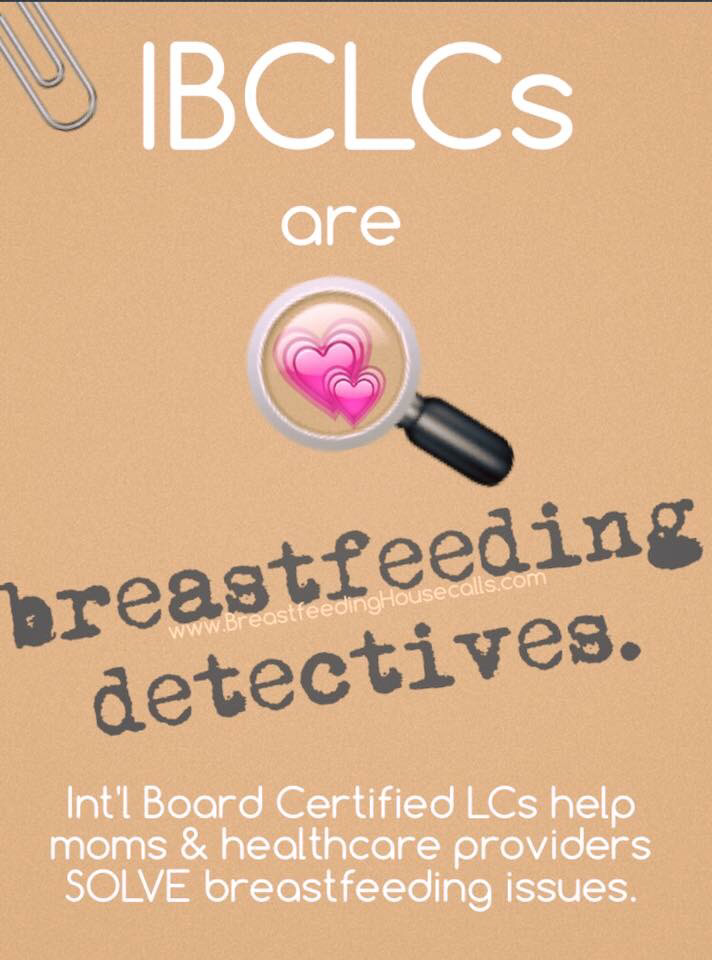Check out recent blogs!
|
Preface: I'm jumping the World Breastfeeding Week gun a bit by sharing this post a day early. After reading it, you'll understand that this is probably the only chance I'll have to sit submerged in the tub and blog (yes, so much TMI)-something I haven't done in months (blog, anyway).
Ok so what's all of this about? World Breastfeeding Week (#WBW2017) is celebrated globally from August 1-7, and this year's theme is "Sustaining Breastfeeding Together". This year, #WBW2017 is asking stakeholders in healthy families to forge new and purposeful partnerships--and after much effort, Breastfeeding Housecalls is doing just that-read all the way through if you want to read where I get mushy about it...but here's the jist: And first, so you understand: See, a similar call to action (to make breastfeeding care more accessible) was placed a few years ago by the Affordable Care Act--except that it had a few loopholes. Though unenforceable, ACA (the Act) made it law that insurance companies cover lactation care, using new and breastfeeding-specific medical coding, under Women's Preventative Services portion of the Act. What the Act didn't specify was who was to provide the lactation care and who would be able to use these new billing codes. With vagueness like that, it then became health insurance companies' job to decide who would actually provide these services to their members: doctors, nurses or...actual breastfeeding experts: the IBCLC...and this is where things start tying back to my good news, so sit tight. The problem See, the the problem was that all IBCLCs are, comparatively, breastfeeding experts, yet not all doctors or nurses are breastfeeding experts--so it took some years, some convincing and some good conscience for only *some* insurance companies to decide that they would save money and help more families by covering services straight from experts: the IBCLCs. And this is what is so super cool: In SA, though, it's taken years (not super cool) for insurance-company coverage of lactation care to become a possibility. BUT... that just changed, because effective earlier this month (yes, I took a while to social-media-release)--after 5-ish years of endless on-hold hours and administrative untangling, it came to be that I finally received a contract to provide covered services with a health insurance company: AETNA! (SUPER COOL!). Just sit here for a second and let that sink in: a private lactation resource in SA finally scored with an insurance company. THAT. JUST. HAPPENED. But just Aetna? Does this solve everyone's needs? It doesn't, but it's the first step in the right direction to get health insurance companies to see the value in providing quality care from an expert and trusted provider, the IBCLC. Of course, all families who reach out will continue to be supported, and insurance claim forms will be provided for them to seek reimbursement, just as I have done for the past 6+ years. My calendar is equally open to all, not just to families who have Aetna. Ok, so this is where I get mushy about it... So what does this mean specifically for yours-truly, and for the families that BH serves? It means that BH will be able to reach even more families than it already serves, and will be able to reach even more families with middle and lower incomes, and that I'll be able to reach more working moms and more community partners who want to answer the #WBW2017 call to forge sustainable relationships for the benefit of breastfeeding mothers. And, personally, it has also meant that in my first month of marriage, I worked approximately 12 hours per day with two sort-of days off...which is definitely not sustainable--and means that I will soon and finally be expanding BH's reach. My priority now is to keep growing babies while growing BH as a resource. Breastfeeding Housecalls will offer more families what it has always offered best: expert care, the ability to see babies ASAP and the commitment to "Be God's hands and hearts in the lives of new families." Thank for taking the time to read this and to share in such great news for me, and also for the moms and babies of San Antonio! Love and breast wishes! laura Stakeholders of healthy moms and babies in San Antonio, please let friends and clients who are Aetna members know that their consults may now be covered (under the vast majority of Aetna policies). #breastfeedingprovidence #moresupportformoremamas #happybreastfeedingweek And practical tips that can be implemented today... Over the years, I've had the opportunity to sit down with many, many, many folk to talk about birthy-business--and I don't mean the usual birthy-business talk about grumpy nipples and sore downunders, I mean real birthy-business talk like about reaching birthy-business goals. My birthy-business brain has been picked over breakfast, lunch, dinner, brunch, in parking lots, on FaceTime and even during supposedly romantic dates (seriously, is all men really want these days business advice??). In return I've received (without solicitation) enough Starbucks gift cards to wean me from McDonald's coffee, gigantic hugs, actual cash, and my personal favorite: UPS-store credit. #win Most requests have come from aspiring birthy-business owners wanting confidential mentorship: doulas, midwives, doctors, photographers, lactation consultants...and also just plain nosy people wanting to know how this single mama made it despite. In the past few months, however, I've seen an unusual amount of "How would you handle this?", "Am I doing this right?", or "I need a business-perspective attitude adjustment." requests. And I've also received an unusual amount of fantabulous life-illuminating updates about business successes which I had a hand in...which is why I'm writing this blog. Based on these very cool opportunities to see what is working and what isn't, both from my experience and from the experience of others, I've compiled a list of 10 dispelled myths that may be getting in the way of success for birthy-business folk...each with its own applicable and practical tips. Spoiler alert: Number 10 might be your favorite. ;) Myth #1. Successful birthy-business owners do not believe that they own birth and breastfeeding.
(Just getting the tough one out first...) As odd as it sounds, I have indeed met many aspiring birthy folk who go in to business because they think that their stance on whatever their business topic is, as we say in Spanish, is la última Coca-Cola en el desierto (or, the last Coca-Cola in the desert/the ultimate everything). According to their egos, they are the only ones who know how to deliver care and teaching about their birthy topic, and they are the only ones who clients will absolutely love. The truth is that business narcissism actually screams business naivity to both clients and referral sources. To approach this in a sweeter way... Many of us have entered the birthy world in order to give to other mothers what we were given (or what was taken from us), yet in the spirit of helping others, we may confuse knowing what feels best for ourselves with knowing what is best for the families we serve. Successful birthy-business owners took steps early on to check their humility and genuinely understand different birthy approaches, or more importantly, they took self-inventory of their ability to empathize with all (most) birth and parenting scenarios-even if they don't fit with their personal health and parenting values. Arriving at the realization that parents and babies are the sole owners of their birthy seasons tells clients that your services are ego-free and and welcoming to all (something which referral sources really, really like). Apply these today: Tip: Families Googling birthy services are going to notice if your website has a lot of "I"s, or if your branding is more about you than about what you can facilitate for your clients. Maybe you're amazing enough that it doesn't matter, but if you're amazingness is still in development (which should always be the case) , focusing on what your services (not you) can do for the clients will mean much more business. Tip: Never forget that you're a business owner, a leader and a professional decision-maker now. Your passion will only go so far if it isn't focused on your own businesses growth. Remembering to mind your own business (1 Thesselonians 11:4) will help you focus and grow on your own approach, and give a life and flavor that attracts clients, instead of putting off a aire of condescention, which is a natural consequence of the "ownership" mentality. And, btw, for those of you who think I'm talking about you, I'm not. Ego is a huge hindrance for many, many, many business folk-so, relax-this isn't aimed at any one person...we're all passionate, and ego and passion can often collide. Myth #2: Successful birthy business owners do not believe that all parents are looking for free services As evidenced by my busy fee-for-service private practice and by the practices of many independent doulas, midwives and breastfeeding professionals that I know, the type of parents that seek private birthy services aren't looking for free, or even cheap. And, guess what? There are more of these parents than what you think. While the families we serve aren't necessarily high-income (see myths #3 & #8 for more), they are planners and savers, and are forward-thinking as they grow their families. These are parents who want to pay for a personal relationship and for a provider's TIME, usually because they know this will save them time and money in the long run. Apply this today: If you're an existing or aspiring birthy-business owner, stop the mind-talk about having to compete with free. List your prices and don't worry about them not being as low as the next...most parents know that quality often requires an investment. Myth #3: Successful birthy business owners do not believe that serving families on a tight budget is fruitless I have done housecalls in all corners of San Antonio and south Texas, and for every demographic imaginable. Because I want to attract economically diverse clients, it's important to me to be able to serve families on tight budgets or in low income households, and I do, everyday...and I still make a living. For families on a budget, value means getting quality, making sure it is not wasted, and that it doesn't become a regular expense (or if it does, that it's affordable). Offering service options and being flexible with pricing will help you accomodate the needs of low income households without necessarily sacrificing your service quality or value. Apply this today: Successful birthy-business owners understand that "low-income" isn't "no-income". Being willing to offer services on a sliding-scale basis, offering payment plans, service-registries for parents' family members to pay into, tapping in to grant funding, offering discounted services, or even bartering services will help expand your territory (again, see Myth #8). Myth #4: Successful birthy business owners refuse to believe that their competitors must be their enemies. Any successful business owner views and genuinely treats their "competitors" as a referral source. Whether they are intentionally referring clients, passively referring clients (like when another doula is booked), or if a client calls you because they didn't have a positive experience with your competitor (it happens, and you could be next, so it's best to stay humble), it's important that you scrub your head of whatever you've heard/seen/thought of a competitor before. If your competitor is worth your mind-space, that likely means that they're doing something right, so stop trolling their pages and policing their every move and focus on your business. Building a competitor up, instead of comparing yourself to them, is only going to make clients like and trust you more, plus, competition grows your market--something you, your competitors and your prospective clients appreciate. Apply these today: Tip: Needless to say but never ever refer to someone has acted irresponsibly and dangerously with a client. Practical Tip: Your competitor and you have more in common than likely most people on this planet. Changing your attitude about your competition will free up mind-space, and allow you both to be a better resource to each other. Myth #5: Successful birthy business owners do not believe that everything natural is always better...or that everything medical is infallible. Yep, this one's a tough one to overcome if, like me, you fix all of your own kid's ailments with breastmilk and coconut oil. BUT, the truth is that not all of the parent-consumers ready to invest in your brand and services are equally crunchy ("natural") or equally allopathic ("medicalized") in their birth and parenting approach. If being a tool for more families is important to you, sticking to an evidence-based business approach rather than marrying a specific natural vs. medical camp will help you attract and keep more clients. Practical tip: "Evidence-based" falls on both sides of the "camp". Learning to interpret research is important to anyone in the birthy-services world. Ask yourself who paid for the evidence to be gathered, and consider the methods by which it was gathered . Since not every birth/baby professional is trained in evidence-critique, here is a good beginner's tool by the Huffington Post to help non-scientists decipher decipher evidence. Myth #6: Successful birthy business owners do not believe that verbal contracts from business partners, clients or vendors are enough. Nearly every successful birthy service entrepreneur will tell you that they learned this lesson the hard way. One of the things that every birthy person has in common is that we're all exceptionally caring and often-times emotionally malleable (how else did we get here?), so when someone approaches us in need of services or with big ideas to partner, we jump in with adrenaline and think things will be awesome, until they aren't. And things not being awesome could be anything from losing a contract for a teaching space, to being stiffed by a client, to getting super sued. If you get anything from this blog entry, it's to put words and intentions on paper, then get signatures. Remember the ego-lesson from Myth #1? Not wanting to put things in writing screams "I'm too good/well-known/sweet/knowledgable to be screwed over." You are not, I'm so sorry. Apply these like right now:
Myth #7: Successful birthy business owners definitely don't believe that one shouldn't be in a birth/breastfeeding profession for the money. "We're in this for the passion, not the money." Yeah right. What. Evs. Anyone who has ever said this to me should start working clinically for free then report back to me in 6 months how their sense of urgency and self-value was impacted...not to mention their level of passion. Me, personally, I'm absolutely in private-practice for the money-because it takes money to be a resource. I have an office and an apartment to pay for, food to buy, and a kid to take to the movies--so, yes, pay here, please. Charging gives birthy-business owners accountability, and it gives clients accountability to show up and follow-through. I wouldn't, however, make a dime if I didn't have passion. Exuding passion and care, and keeping myself knowledgeable (CEUs are expensive!) is what keeps clients coming back to me, and what keeps referral sources referring. Apply this business mental feng-shui technique right now: Even if you don't need the money, pretend you do (and if you just can't pretend, are you sure self employment is for you?). Put yourself on a budget, and force yourself to replace what you spend from new sales (partners, you're welcome). Nothing will motivate you to hustle more than being hungry. Myth #8: Successful birthy business owners don't believe that the market is too small. "There are already X amount of doulas/midwives/birth photographers in San Antonio." is one I hear a LOT...but when I help others actually understand the market, they are able to see that there may, in fact, not be enough doulas/midwives/birth photographers in our market. That there isn't enough room for you in your birthy-segment is more about you than it is about the market. Stop thinking like that. And stop listening to people who make you feel like you won't make it because chances are that they simply don't want to compete with someone new and awesome, like you. Admittedly, the last market analysis that I did for my own business was depressing...which is why I decided to be the change I wanted to see in my market. Out of X amount of births, my perceived "market" for housecalls was like 2% of those births...until I added choices like office visits, sliding scale prices and industry discounts, and my market share rose. Successful birthy business owners dont wait for their markets to expand, they expand how they reach their market. Apply this today: You can start by expanding the easy things like your business hours, service areas and types of services offered. Then maybe try out new services until one shows that it's reaching families you wouldn't otherwise see. Myth #9: Successful birthy business owners do not believe that one must have a perfectly aligned world, or a perfectly planned business in order to start hustling. Someone with a valuable service or product to sell, with a market who is ready to pay, isn't going to wait around for the "right time". Instead, successful small business owners will tell you that they had an idea, set up their logistical shell, marketed their butts off, and then perfected business operations one client at a time. The invaluable lessons learned by (responsibly) jumping in to starting your business will help you avoid the writer's block of early business plan writing and the logistical what-ifs (ummm, hello, can we all scream about the logistical issue of childcare--see below) that hold so many dreamers behind. With that said, nothing will kill a business like impulsiveness and empty talk, so if you're jumping in head first, make sure that you so have an element of structure to your plans, the very basics of which include having legit credentials, a good reputation, a sense of urgency for your client's need, and childcare options...which brings me to this.. If childcare is an obstacle, apply these today: Childcare...alas, one of the toughest challenge for a birthy-business owner to overcome. For me personally, the biggest childcare challenge was the oncallish nature of my work, but here is how you can get creative: • Could any of the services you offer be professionally delivered with your own child in tow? And maybe offer a discount for needing to bring your child. Say, babywearing your infant, or taking your school-aged kiddo with you to teach a class. Some clients won't like it, but some won't mind-so ask first, and consider tweaking your rate for their graciousness. • Could you change how you offer your services? Maybe teach classes in your home instead of working 1:1 with clients during your babies "tougher years". You can stil profit by offering some of these services remotely, or on your turf. • Could you barter child care? • What about drop-in childcare options? • What about planning ahead and posting to see who in your network could be available on a dime? Ok, back to our regularly programmed demything...which is almost over: Myth # 10. Of course, I would save the biggest myth-debunking for last...remember, I told you it might be your favorite. ;) Successful birthy business owners absolutely positively do not believe that one can wing a business start-up without meaningful business mentorship... When I first started my private-practice, I devoured DIY books about small business, visited the interestingly flirtatious gentleman of SCORE, and I joined industry support groups...yet the one thing I desperately needed and couldn't find was someone who I felt comfortable mentoring me (privately, since protecting your business' business is important). I wanted someone who would listen to my adrenaline and tell me if I was wasting time or if I was on to something, someone who would gently give me business perspective without clipping my wings--yet who would push me over and force me to fly when she saw me about to clip my own. I wanted an ambitious business "partner" without actually needing to sell him/her a part of my business-soul. Which brings me to this post's last applicable practical tip that you can do today: If this post has helped you understand some of the traits of successful business birthy business owners, then know that in May 2017, I will be turning this hobby of mine (talking to others about growing their business) into a real-deal service (and not for Starbucks or UPS store credit). To learn more about the different types of business mentorship you can receive from me, and to submit an interest form for mentorship, please read more submit your interest! And, of course, if you feel like this post could be helpful to other small birthy-business owners in your network, please share! 💗💦, Laura #breastfeedinghousecalls #businessmentorship Make sure you and your baby's Spanish-speaking caregiver are on the same page!Over the years Ive been called by new mothers to do a neat type of housecall, one for mothers and their Spanish-speaking-only in-home infant-caregivers (and mothers-in-laws). This consult usually combines including the caregiver in mom's back-to-work breastfeeding prep (understanding on-demand and paced-bottle-feeding, etc.) and breastfeeding "updates" that celebrate and help families and caregivers understand each other's cultural infant-care norms in our wonderfully diverse and international city, San Antonio! As I honor more and more of these requests (and have a blast while doing them) they will now have their very own official consult category in my menu of services. If you know a new mother who could use a bilingual and expert breastfriend, tell her about BH's Mom + Caregiver BILINGUAL Consults! For scheduling a housecall or virtual Mom + Caregiver Consult, please visit here. Call to check services are free or charged.PRIVATE-PRACTICE LACTATION CONSULTANTS
In alphabetical order based on business name Laura María Gruber, IBCLC Serving SA & all of Surrounding Home Visits, Office Visits & Teleconferencing Hablo español (210) 209-1002 BreastfeedingHousecalls.com Kathy Parkes, RN, IBCLC Call to ask about areas covered Home Visits & a Videoconferencing (210) 834-5399 HOSPITAL RESOURCES STONE OAK/NORTH CENTRAL Breastfeeding Housecalls, LLC & Lactation Center-(210) 209-1002 North Central Baptist Hospital 210-297-4086 MEDICAL CENTER Baby Cafe 210-207-7138 St. Luke's Baptist Hospital 210-297-5096 The Woman's Place at Methodist Health Care System 210-575-0261 NORTHEAST Northeast Baptist Hospital 210-297-2069 The MILC Group (210) 960-MILC DOWNTOWN Christus Santa Rosa Hospital 210-704-2392 University Hospital 210-358-3897 Baptist Medical Center 210-297-9189 MILITARY SAMMC 210-916-0139 Wilford Hall 210-292-6452 NEW BRAUNFELS Christus Santa Rosa Hospital (New Braunfels) 830-643-6190 Resolute NB Lactation-(830) 500-6070 A class for moms wanting to conquer breastfeeding with their next babyBecause I know first-hand how unexpected breastfeeding outcomes can weigh on a mother's confidence, I offer a class that addresses the unique emotional needs of moms who may have had bumpy breastfeeding beginnings with previous babies.
This class can help moms to heal their #breastfeedinghearts just in time to give breastfeeding another shot, empowered with knowledge and unconditional support. If you know a mom who is expecting her next baby, and would be interested in joining us this next Saturday, March 11, from 1-3 pm, please share!
Click to set custom HTML
As a new mom, it's important to know when things are going well with breastfeeding because when you know what is healthy and normal, you're able to better understand when it's time to seek help . If you're pregnant, the best way to prepare and gain knowledge of what is normal about breastfeeding is to attend a good breastfeeding class in order to learn the basics. In addition to taking a breastfeeding class, reading as much as you can on recommended website and books will be helpful. If you're on Facebook, one of the best ways to seek recommendations on helpful breastfeeding resources is by asking in reputable "mommy-groups" where breastfeeding is embraced. Whether you're expecting, are just just getting started with breastfeeding or have been nursing for a while, yet aren't sure what is normal and what isn't, the lists below will help you understand what is normal for your breasts, and for your baby, and when to know it's time to ask for help. What IS normal for breasts:
What ISN'T normal for breasts: If you have doubts about your milk supply, your baby's weight or baby's pees/poops, consult your baby's doctor, your midwife or your lactation consultant immediately.
What IS normal for your baby:
What ISN'T normal for your baby: If you have doubts about your milk supply, your baby's weight or baby's pees/poops, consult your baby's doctor, your midwife or your lactation consultant immediately.
And, if you are pregnant, you might want to see a lactation consultant prenatally if any of these sound familiar to your situation:
Imperfect breastfeeding IS more common than it's made to seem by many. "Bumpy" breastfeeding can be smoothed out by reaching out for support as soon as you know you're having issues. If you are in San Antonio, Texas, Laura Gruber, IBCLC is happy to help! What exactly happens during a lactation consultation? Well, if your lactation consultation is with moi (or w:someone like moi) this is more or less what you can expect: Before we meet, you'll schedule your appointment online. You'll receive a text from me confirming our appointment, then an email asking you to fill out forms. We may chat on the phone if you have time, then I'll usually see you same or next-day. On my way to you, I'll usually send you a "Headed to you...see you soon!" text...or you'll come over to my cozy office and send me something similar. If either one of us is running behind, we check in with each other because, well...babies! But wait. A few things to know about me before you have me as a guest in your home:
And then it all begins...
Now that you know what to expect from your time with me, I look super forward to supporting you and your sweet baby! Virtual hugs, Laura
|
Check Previous Blogs!
November 2023
|














 RSS Feed
RSS Feed
